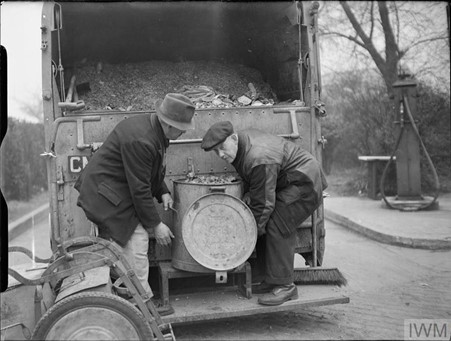The Environment Bill is entering its third reading in the House of Lords today, which gives members the chance to make any final amendments before it returns to the House of Commons for consideration.
Once considered, the bill can then receive royal assent.
Defra has signalled that the responses to the consultation on consistent collections will be published by early 2022, after the Environment Bill gains royal assent.
Implementation
In a policy paper, Dr Henry Irving, senior lecturer in public history at Leeds Beckett University, said the proposals as they currently stand “echo those of the wartime ministry of supply”.

This was when a compulsory recycling scheme was introduced for urban areas in 1940, but he said it ran into difficulties “due to shortage of staff and collection vehicles” during the war.
The report noted that while it is “impossible to say” how many councils were collecting materials in 1940, statistics collected by ministry of supply show that the numbers actually fell by approximately 16% because of “problems with collection and processing” caused by the new rules.
This created “frictions that had a long-term impact on public attitudes”.
Stages
Dr Irving warned Defra that consistent collections should be introduced in stages, and more consideration should be given to some rural local authorities. This would “safeguard against claims of economic impracticality”, he said.
Dr Irving’s report also hinted at the importance of secure markets for secondary materials, “which are far from certain in the case of plastics”.
‘Magic bullet’
Dr Irving said Defra should tackle the “root causes” of current disparities rather than hoping consistent collections will be a “magic bullet”.

One such example was in high-density settings, where the historian said communal approaches will be most important.
During the Second World War, flats were commonly identified as having the lowest recycling rates and most problems with compliance.
Defra has specifically included flats in its plan for consistent collections, but has also identified them as a likely example where exemptions will apply, Dr Irving explained.
He added: “To avoid a repeat of wartime problems, work needs to be done in advance of implementation, rather than waiting for issues to arise.”
Dr Irving called on local authorities to consider the viability of communal bins before seeking technical exemptions from Defra’s scheme for premises unable to accommodate multiple containers.
Labelling
He also pointed out a potential problem with labelling.
Defra hopes consistent collections and the first phase of the producer responsibility scheme will begin in October 2023, with mandatory labelling from 2025-27, he explained.
On this, Dr Irving remarked: “A lengthy delay between the implementation of consistent collections and the introduction of clear labelling risks reversing this position – with people being told to do the right thing, only, as in 1940, to find that the system makes it hard for them to do so.”
The challenge is to get the implementation right
– Dr Henry Irving, Leeds Beckett University
‘Botched’
Dr Irving concluded: “The wartime government’s compulsory direction to collect materials was an attempt to rationalise a recycling system that had been hastily constructed. The Ministry of Supply accepted that a one-sized-fits-all approach was impractical and thought carefully about how to communicate the policy. However, the implementation was still botched, creating frictions that had a long-term impact on public attitudes.
“Recycling is today far more entrenched than in 1940 and Defra’s goals are more ambitious than the Ministry of Supply’s. The challenge is to get the implementation right.”
Measures
His conclusions are based on extensive research into the operation of recycling in the Second World War and the results of surveys modelled on wartime opinion polls.
A YouGov poll commissioned by the historian found that there is a greater trust in recycling today than during the war. Some 40% of people expressed doubts about the way recycled materials were used in 1942, but that figure is only 13% today.












Subscribe for free